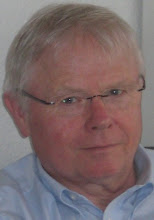
The first problem was the regular Muslim prayer, five times a day. The prayers early in the morning and late at night could be done in the privacy of a hotel room, but especially the prayers at noon and in the early afternoon fell regularly in times when the group was on the road or visiting a tourist site. Sometimes Nureddin and Murat, the two men that prayed all the six prayers every day faithfully just stole away from our tour into a mosque or went to a side room when the group was having tea. We know they were praying and never had problems with delays through prayer times.
A second problem was Nilüfer’s the woman’s habit to wear a headscarf and relatively heavy clothing in a sometimes rather hot weather. The other women in their easy T-shirts or thin blouses obviously suffered with the poor girl and her heavy religious burden. Even if Nilüfer joyfully declared that there was no problem with the heat, a certain unspoken question remained: who is right and who is wrong with the respective clothing?
Now, I know Nilüfer long enough to know she is not in arms against me. I had long talks with her and sometimes showed her my friendship by spontaneously highfiving her (which is not shaking hands, what she normally avoids among other believers). I came to the conclusion that wearing this or that kind of Muslim clothing is not a matter of administrative regulation (“no” in German schools or Turkish universities, “yes” in restaurants, public places etc.). It is a very personal decision and inevitably causes trouble to the woman who decides. She knows that the heat under a headscarf can be burdensome, she knows that maybe her sister will decide differently (and people will ask about the difference), she knows about the looks she gets in a typical “German” surrounding, say a restaurant.
She knows the problems, so I do not have to tell her my problems with her clothing, if I have any. My job is it to synchronize her life with mine, to make hers possible as other people make my life possible. Synchronization also means to make a Muslim friend feel at ease with my alcohol drinking habits. I came home with the decision to drink a little vine every now and then in front of Nureddin and Murat - let them understand how a wise use of alcohol is part of the joy that my Christian faith grants me.
The Open Society tolerates a huge bandwidth of different lifestyles. There are people next door to us with a very different set of ideas what life is all about. We make room for them, sometimes even enjoy that life is more colourful with them than without.
The Gülen-movement is a great help in all of these synchronizations. All the Gülen-people I met were well educated men with a good measure of success and wealth they had achieved. The rhythm of their world, our world, is clearly given by modern information technology, tough time schedules, the six-days-week of the industrialized world. If they would turn to the local clergy of the villages or towns they came from, they would never get an advice how to live as a Muslim in a world like this.
Here comes Fethullah Gülen in, as a guide. His is the world of Enlightenment as it came after 1700. He encourages his followers to accept the modern world an conquer it personally for their optimism, compassion and faith. And they repeat in a Muslim way what the Swedish novelist Per Olov Enquist has told about the Christians from the town of Halle / Germany around that time: that Enlightenment and a pious Renaissance are two sides of the same medal. The “Pietists” of August Hermann Francke lived side by side (though not always without tensions) with the leading philosophers of these days. And they also founded a huge social work, just like Gülen founded his schools and tuition organizations.
I came home with the steadfast desire to help people synchronize their lives with mine. Getting older I will need a lot of synchronization, too. So maybe my strategy will pay for myself.
Sunday, November 1, 2009
Synchronization
Subscribe to:
Comments (Atom)

